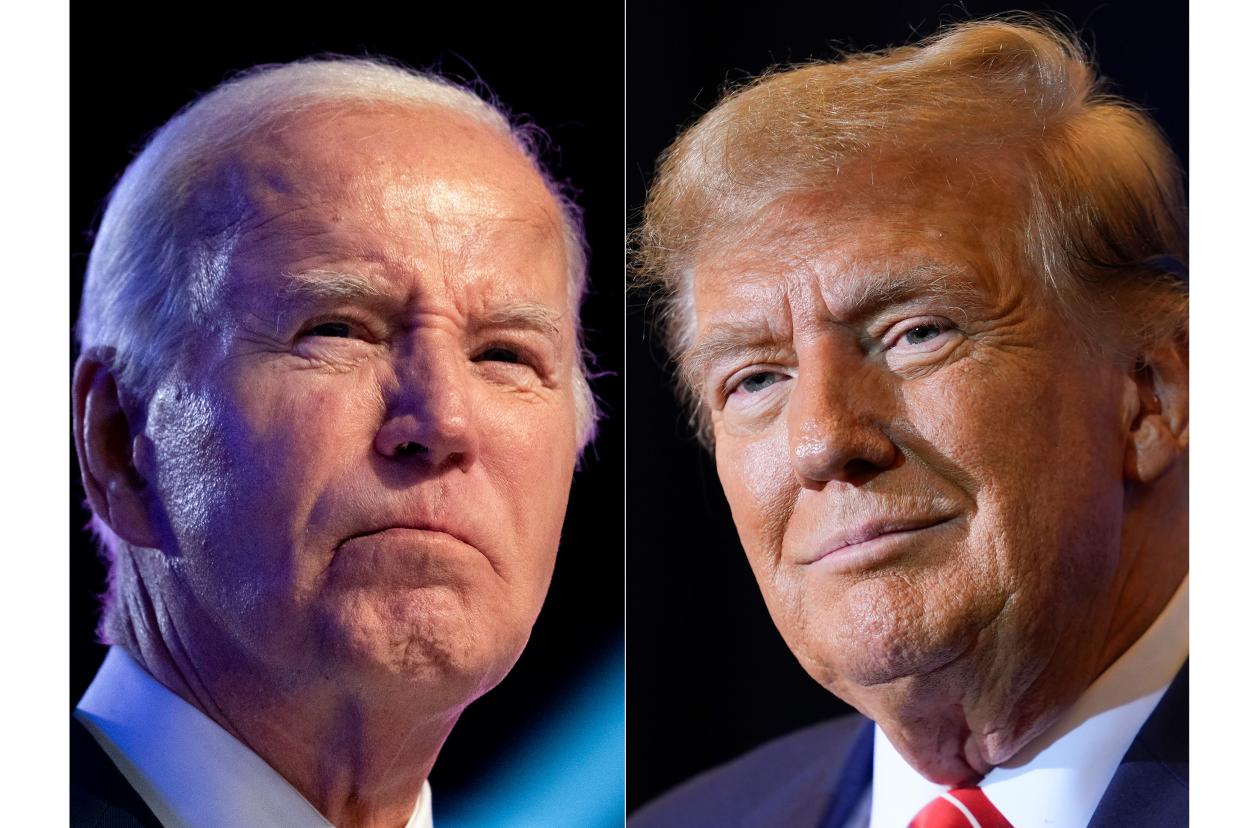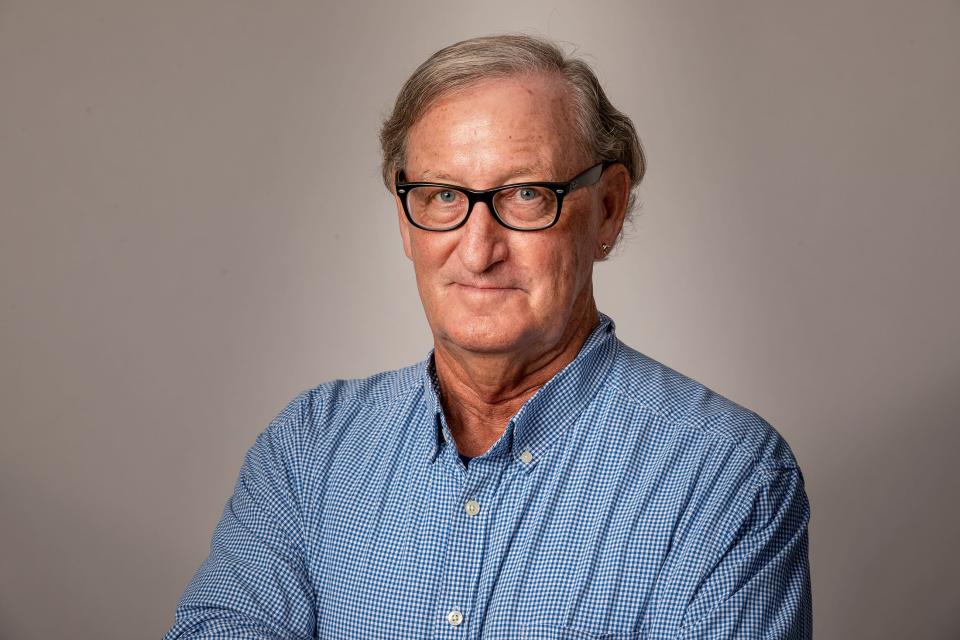They were old in 2020. They're 4 years older now, as are their talking points | Anderson

- Oops!Something went wrong.Please try again later.
- Oops!Something went wrong.Please try again later.
I’m so antique that I can remember when 18-year-olds got the right to vote. The 26th Amendment to the Constitution of the U.S. was passed by Congress in March 1971, and had been ratified by the requisite number of states by June.
And the whole world changed. … Or didn’t.
The right of younger folks to cast a ballot came at a time seemingly tailor-made for the event: The streets were filled with young folks protesting a foreign war. The presidential election was just around the corner, and, as famed Gonzo journalist Hunter S. Thompson said at the time, “anyone with a new toy is likely to play with it, at least once.”
The political world had been ruled by old geezers of one sort or another for decades, and as the amendment passed, geezerdom held its breath. Both parties did their best – however awkwardly – to connect with the newcomers.
“New Voter” education rallies were held. The candidates tried to affect a young “look,” political advertising made a meager attempt to draw the “youth vote.” But in the end, no one had any idea what to do.
It mattered little. Though some turnout from the “new voters” could be measured, their influence was minimal. In the GOP landslide that followed, the parties split the new voters almost evenly, but there were too few to matter much. The status quo relaxed, took a breath, and went right back to business as usual.
Taylor Swift: A sweet story of love and football? Or a plot against democracy? | R. Bruce Anderson
Fast forward to 2024. In the years in between, the “youth vote” never really materialized. The explanations run the gamut, but it’s my view that for most young folks, the relevance is just not there.
While the youth vote has never been a major factor, youth, in another participatory form, certainly has been. High school and college students are the shock troops of any campaign worth its salt. They have time to burn. They are cheap to hire, smart, energetic and idealistic.
The problem this year is the last: The young citizens I see every day have tremendous energy, but it’s fueled by their optimistic belief that they can be a force toward a better future. When the people trying to inspire them are so completely moss-bound and concreted into the past, that’s a challenge. Then “the future,” for the candidates, may be down to less than a single decade, it’s hard to persuade young campaigners to care very much.
Young folks are not the only ones crabby about these choices. The geriatric character of the ruling class gives pause to ancients like me, too. There’s a certain “ground hog day” quality to the 2024 run, and the ugly sense of déjà vu is not a pleasant one.

The next election not only feels like the last one, but it actually is the last one, in all essentials, and I do not remember 2020 with sweet nostalgia.
While the candidates, old then, are now four years older, their worn-out talking points are the same. They’re still squabbling over 2020 issues, coupled with re-fighting a tired, irrelevant, 1960s-era culture war lacking almost any significance for the people I have in my classes – or for anyone under 45.
How not to solve problems: Congress, immigration and 'the game' | R. Bruce Anderson
Joe Biden was born in 1942, Donald Trump in 1946 – both of them predate the latter half of the last century. “Experience” is important, but does it have to go back to the Eisenhower administration?
Never has the elected class been so old, or so pathetically out of touch with the reality of this new generation. And nowhere is this more painfully obvious than in the (apparent) choices by both parties in their candidates for the presidency.
Ideology aside, nitpicking as to who is more wretchedly impaired by age than the other should not be a central issue, but it is. These folks are primeval. Prehistoric. Their antediluvian crustiness is almost tangible through the computer screen.
Someone said that “the first party to drop their first choice for someone 30 years younger, wins.” For the people I see in class every day, that’s truth.
R. Bruce Anderson is the Dr. Sarah D. and L. Kirk McKay, Jr. Endowed Chair in American History, Government, and Civics and Miller Distinguished Professor of Political Science at Florida Southern College. He is also a columnist for The Ledger and political consultant and on-air commentator for WLKF Radio in Lakeland.
This article originally appeared on The Ledger: Biden and Trump: Stalwarts of the geriatric ruling class

